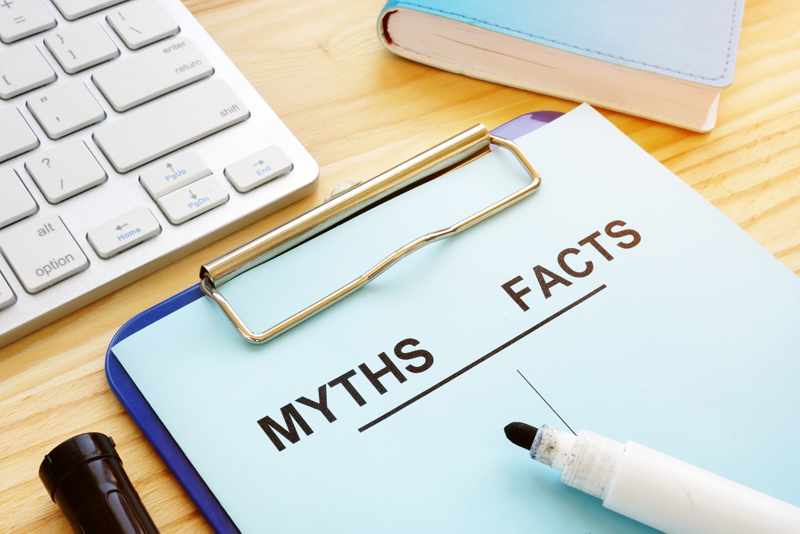3 Credit Score Myths Debunked
It’s time to rethink what you “know” about credit scores. Honestly, you may be holding onto misinformation that is actually holding you back. You might be surprised at what you discover here today. We’re about to debunk 3 common credit score myths.
The Truth Behind Credit Score Myths
Below, you’ll find our list of myths. We’re sure you’ll recognize some of these immediately. Our hope is that you correct your credit mindset right here, right now.
1. “Checking your credit report will hurt your credit score.”
When you or anyone else checks your credit report, that check-in is flagged with a notation called an “inquiry.” There’s a rumor out there that says inquiries damage your credit score. It’s only somewhat true.
The inquiries only affect you if they’re related to credit applications you’ve submitted. If you’ve been applying for credit cards or loans, that’s when your credit score might drop. Why? Because such inquiries suggest you’ll soon be taking on new debts.
But you’re allowed to look at your own credit score without penalty. When you make an inquiry, it’s actually a sign that you’re in touch with your finances and managing them well. You’re curious and trying to improve perhaps. (Oh, if we only got a credit score boost for checking our own reports…)
2. “Closing a credit card will help your credit score.”
Quite the opposite. Closing a credit card you’re no longer using might actually lower your score. Suddenly, that available credit is gone. In the credit world, you’re measured by how much credit you’re using. The ratio is called your “credit utilization.”
Understand how your credit score works. The formula will focus on how much credit is available to you, and how much you are actually using. The more available and the less you use, the better.
If you close a credit card, you decrease your total available credit. Your credit utilization goes up, and that’s not going to improve your score. Please note that if a credit card’s annual fees or the risk for going into more debt stand as issues, these both warrant the closing of a card. Protect yourself. Everyone’s credit situation is unique.

3. “If you have a good job and high income, you’ll have a good score.”
Some individuals believe that a better job and better income automatically mean a better credit score. But that’s not true. Your career and paycheck have no direct effect on your credit. Your scores are determined by what’s found in your credit report.
What’s on your credit report? Information about your total available credit, how much of it you’re using, and your overall management of debt (on-time or late payments, balances paid in full, etc.). Your report doesn’t include details about your income. It doesn’t even indicate whether you’re employed or not.
If you do secure a good job and higher income, that can, of course, help your score indirectly. You’ll perhaps have the means to pay your debts in a timely manner or even in full. And lenders will likely ask you about your income as you apply for lines of credit.
Your Credit Is a Powerful Tool
Our hope is that you learn to see credit as a tool. And just like any tool out there, it’s neither good or bad on its own. Credit is simply credit. It’s how you use it that makes a difference. It’s how you manage it that can either lower or raise your credit score.
